use MY data's Executive Group
use MY data is the only independent movement of patients, relatives and carers focused on the use of patient data.
We are unique in being led by our Members. Our Executive Group is drawn from use MY data Members. The Executive Group exists to act on behalf of the Members and works to define the priorities, actions and activities of use MY data. The Executive Group sets the strategy and direction for use MY data and monitors progress against the strategy. In this role it guides the Secretariat in its work taking forward use MY data’s work programme.
Notes from meetings of our Executive Group & Secretariat are available at the foot of this page, or via this quicklink.
Yvonne Adebola
Yvonne Adebola holds a BSc in Human Biology and an MSc in Global Health with Global Surgery from King’s College London. In her early career, Yvonne worked in clinical trials collecting patient acceptability and discrepant data investigating which elements of the self-test kits patients found user-friendly (SH:24); on the pivotal RADAR-CNS research programme, involving the use of wearable devices to collect patient data, understanding what was insightful or burdensome to patients; for Signant Health, a leading provider of patient technologies where she focused on electronic data collection of patient-reported outcome measures in clinical trials; and for a medical communications agency including an instant messenger focused on protecting confidential health information. She also participated as a Voice for the Future early career scientist posing questions on science policy to MPs in Westminster.
Yvonne now works as a Consultant Medical Writer with a focus on patient-centred data and communications. She is highly experienced in the research, design and implementation of scientific and technical communications for regulatory bodies, healthcare professionals, patients, carers and the public. She is passionate about the patient voice in healthcare research, delivery and policy with a focus on advocacy, accessibility, equity, diversity and inclusion. Yvonne works for a diverse range of organisations across biotech, medical devices, healthcare technologies and more. She draws from her holistic experiences across academia, industry charities and personal life, including insights drawn from interviews with patients and families. She has been a caregiver for a close family member with a rare cancer and a helpline volunteer for Yes to Life, an integrative cancer-care charity.
Other organisations or networks that Yvonne is part of/connected with and which are relevant to the work of use MY data
- DATA-CAN, Patient and Public Involvement & Engagement Group Member
- University of Sheffield Clinical Trials Methodology Steering Group, PPIE Panel Member
- The Patient Information Forum, Member
- Partners for Patients NGO, Member Volunteer
- Patients Association, Member
- Independent Clinical Research Freelance Network, Member
- International Society of Medical Publications Professionals, Member
- European Medical Writers Association, Member
Richard Ballerand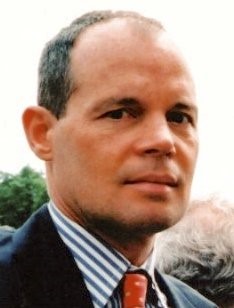
Richard is an Axolotl partner and digital health engagement advisor. Based in London, he draws on extensive lived family experience of British, French, and American healthcare systems - including advocacy, clinical trials, and care coordination.
Having sustained a traumatic brain injury during his doctoral studies, Richard has particular interests in those with invisible disabilities and the challenges facing both ex-military and diverse communities.
He is a public governor of Chelsea and Westminster Hospital NHS FT, a lay lead for NICE Technology Appraisal Committee, member of MHRA Patient Group Consultative Forum, EUPATI fellow (European Patients’ Academy on Therapeutic Innovation), and RSM fellow (Royal Society of Medicine - serves on Medicine and Society Council).
Other organisations or networks that Richard is part of/connected with and which are relevant to the work of use MY data
- Advisory Board member, Healthcare Transformation Academy, EIT Health,
- Member, Diversity in Clinical Trials Research Group, Cancer Research CRUK,
- Patient co-chair, THIN Advisory Committee (The Health Improvement Network),
- Lay member, Science and Infrastructure Delivery Group, Health Data Research UK.
Samina Begum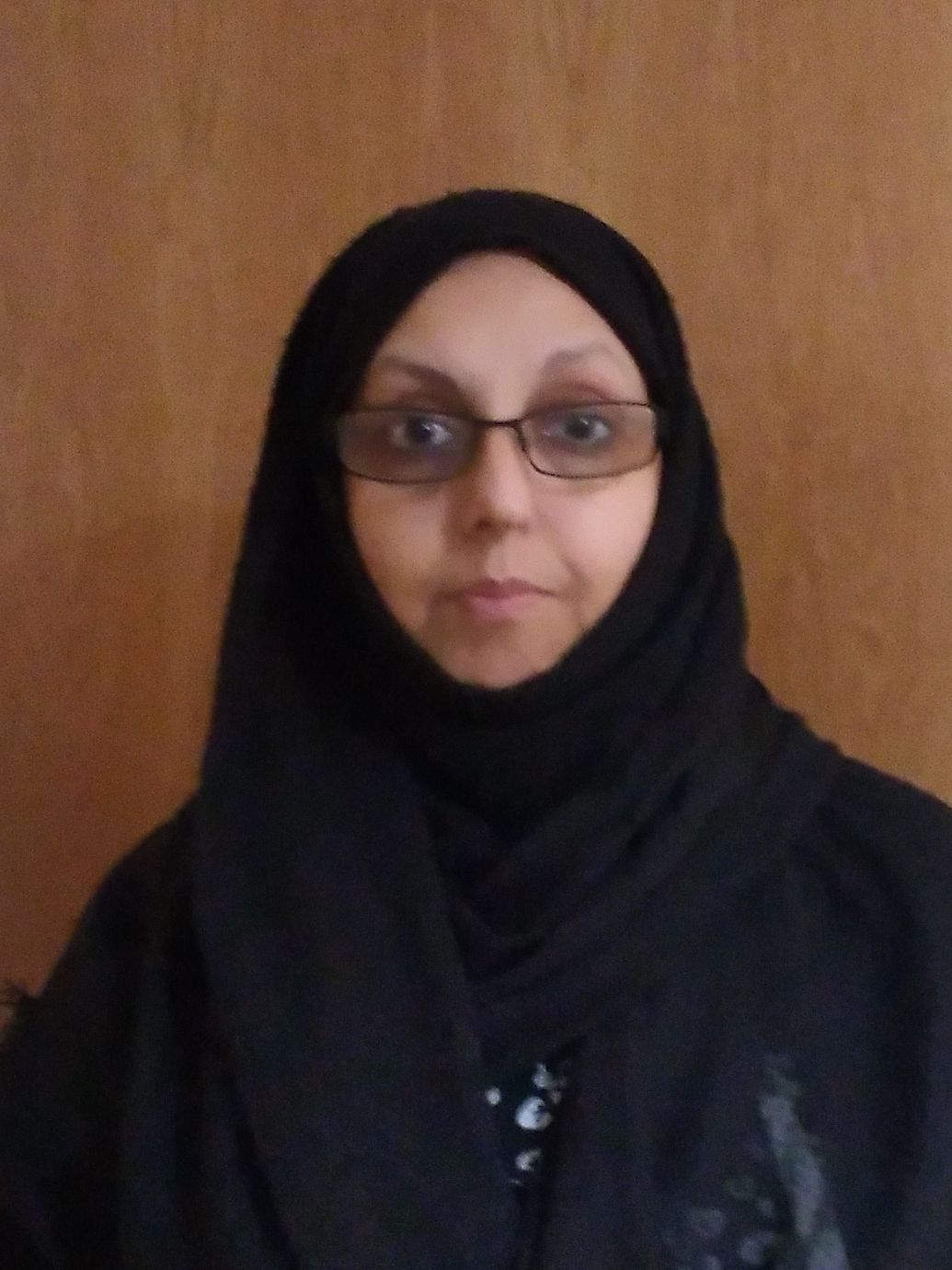
Samina became interested in health research through her experience of living with a health condition.
Her career background was in Mental Health working in both the statutory and voluntary sector. This gave her an insight into health inequalities for marginalised groups and advocated for them in society.
Other organisations or networks that Samina is part of/connected with and which are relevant to the work of use MY data
- Versus Arthritis- Research Partner and EDI member
- Open Safely- PPI Advisory Group on Governance
- Standing Together- PPIE Race and Health Inequalities.
- Cancer Research UK (CRUK) Inclusion in Involvement Steering Group
- Pool member for Interview Panels for senior CRUK positions
Dave Chuter (Vice Chair)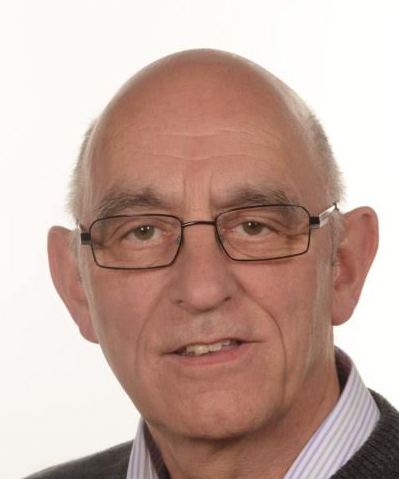
Dave retired from fulltime employment in 2020. He was a Print Consultant for a large printers in Portsmouth.
He is married with two daughters, two grandsons and a granddaughter. Dave's hobbies include photography, walking and growing produce on his allotment.
Dave's pathway into research was after his treatment for Oesophageal cancer in August 2006 and was his way of giving back to the hospital and helping new patients with support from patients, so many new patients were being invited to join studies and trials and all had questions he could not answer so he joined his local Cancer Partnership Research Group (SWSH) to find out about these trials and help patients make an informed decision to join or not.
SWSH CPRG was a mix of patients, carers, health professionals and researchers reviewing studies and helping with the lay summary and PIS. Dave chaired the group from 2014 to 2017.
As there was no local patient support in 2006 Dave started up the Guildford OG cancer support group in December 2006 and he still coordinates and runs this 14 years later, recently going virtual and offering other groups around the UK to join on Zoom
In December 2009 he was elected Patient Governor at the Royal Surrey NHS FT hospital and he stepped down in July 2016 to concentrate more on his NCRI UGI CRG (2014 – 2017) and CRUK CERP (2015 – 2019) roles. He was asked to stand again as Hospital Rest of England Governor in Oct 2018 and is now Chair of the Patient Experience Committee for the Trust.
Dave joined the OPA (Oesophageal Patients Association) in 2015 as Trustee and then Chaired the Charity from 2017 – 2020, and still volunteers with the OPA as a patient advisor and telephone buddy.
Other organisations or networks that Dave is part of/connected with and which are relevant to the work of use MY data
- Royal Surrey NHS FT Hospital Governor
- NCRI Advocate Group member
- NCRI Living With and Beyond Cancer Research Group member
- ICPV (Independent Cancer Patient Voice) - Chair
- DICE (Digestive Cancers Europe) Patient Advocate - Board Member
- WCRF (World Cancer Research Fund) Patient Ambassador - Research Grant Panel Member
- Western Sussex Hospitals NHS FT Research Patient Champion
- Cancer Research UK Patient Involvement Network.
- NHS Leadership Academy, PPI member.
- NICE PPI Stakeholder for digestive cancers
- NIHR Academy - PPI Member
- Kent, Surrey and Sussex NIHR CRN - PPI Representative to the Partnership Board
- EORTC (European Organisation for Research and Treatment of Cancer) – Chair of the Patient Panel
- Cancer Research UK City of London Centre PPIE Committee .
Jo Gumbs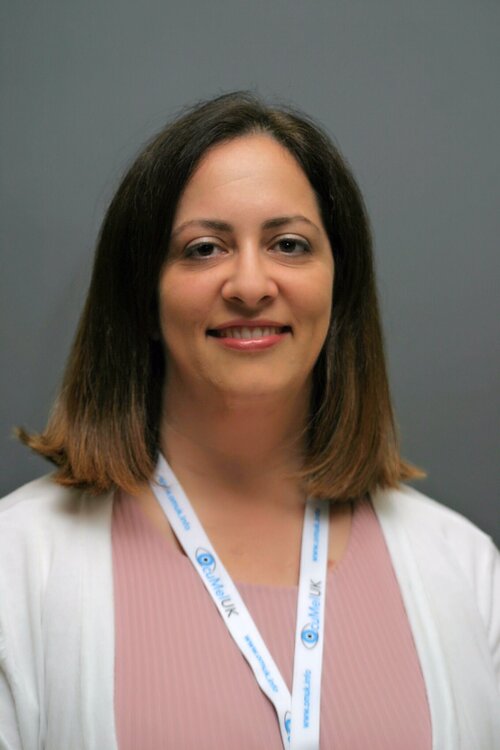
Jo Gumbs lives in Berkshire and joined the team as an Executive Group Member in February 2021.
Jo’s father was diagnosed with ocular melanoma. As it is a rare cancer, they faced many challenges in terms of treatment and found it a very isolating experience with many unanswered questions. Sadly, Jo’s father passed away a few years after his diagnosis, so she wanted to ensure there was more support for future patients.
Jo is now the National Director of OcuMel UK. Through her work and learning from the team at Melanoma Patient Network Europe, she became familiar with the difficulties some patients faced and learned how patient groups have worked to influence change. Jo joined the team at DataCan, the Health Data Research hub for Cancer, and is a member of their Patient and Public Involvement and Engagement Group (PPIE). Through them, she has found a love of data and can bring rare cancer communities experiences, so their needs are included in future plans.
She is part of the WECAN Training programme for Evidence-based Advocacy and regularly meets with the Cancer52 and Genetic Alliance teams. This led to an invitation from the Get Data Out team at Public Health England, to join their Working Group to look at the data needed by her community.
Jo believes that knowledge is power, and she works with her community to increase knowledge levels. They have built a Knowledge and Strategy community, where they share and discuss scientific papers and run a weekly ‘book club’ where scientific papers are discussed. She feels patients should have the information and support they need, at a time they need it. She and her team launched a service for ocular melanoma patients and family members to receive professional emotional support and have recently recruited a Clinical Nurse Specialist to support patients, especially when navigating treatments and clinical trials.
Jo is keen for the patient voice to be ‘at the table’ at the beginning of any research. Having learnt more about patient pathways and how medicines are developed, she now focuses on access to treatment and looking at how she can encourage the right research to help her cancer community. Although she has experience of a rare cancer, she appreciates that even the more common cancers have subtypes, so she feels it’s vital that work is not duplicated and that solutions help across communities.
Other organisations or networks that Jo is part of/connected with and which are relevant to the work of use MY data
- OcuMel UK
- DataCan, the Health Data Research hub for Cancer
- WECAN Training Programme
John Marsh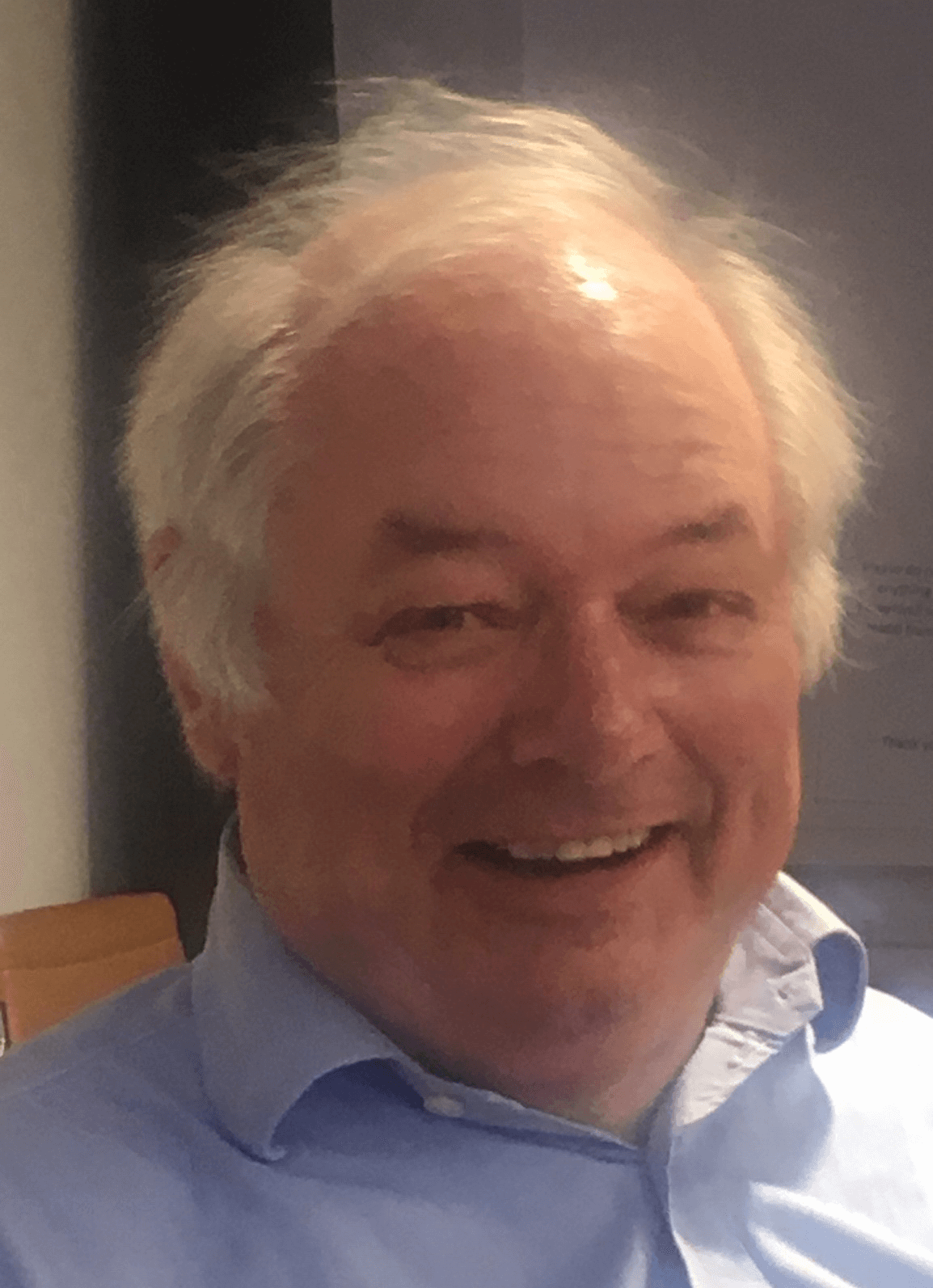
John Marsh has a background in consumer data and became interested in health data following diagnosis with bowel cancer in 2008.
His particular interests are in breaking down the barriers between researchers and their legitimate use of personal health data to improve world health, to address the effectiveness and efficiency of the NHS and to drive forward UK plc. John also supports the necessity for a fully comprehensive health record for patients to be available to approved clinicians in order to improve health outcomes and for that same health record to be available to the patient.
Other organisations or networks that John is part of/connected with and which are relevant to the work of use MY data
- Member of the Programme Board for DARE UK
- Member of the PPG Group for the Bowel Cancer Intelligence Network
- Member of the GRAIL Patient Focus Group for Galleri
- Member of the Cancer Research UK Commercial Data Partnerships PPIE Panel
David Snelson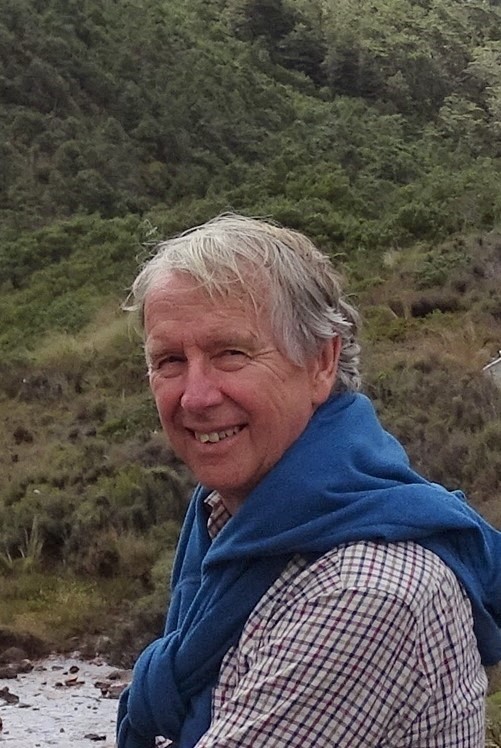
David Snelson started taking an interest in health data when he became aware of data disconnects between NHS organisations dealing with several chronic conditions that he has developed in recent years.
In his working life he spent 37 years in the Royal Navy, being fortunate enough to command two destroyers and an aircraft carrier as well as spending time in the Ministry of Defence. After leaving the Navy he worked in both Executive and Non-executive capacities for the Port of London, The Port of Milford Haven and the Maritime and Coastguard Agency.
David is a Trustee of the Association of Sail Training organisations and is kept busy in his spare time by family, particularly grandchildren!
Other organisations or networks that David is part of/connected with and which are relevant to the work of use MY data
- The Addison's Disease Self Help Support Group
- CLL Support group
- Chair of GP surgery Patient Participation Group
- Member of SE Hampshire Patient Participation Group Forum
- Member of Hampshire and Isle of Wight Integrated Care Board Digital Assembly.
Ceri Steele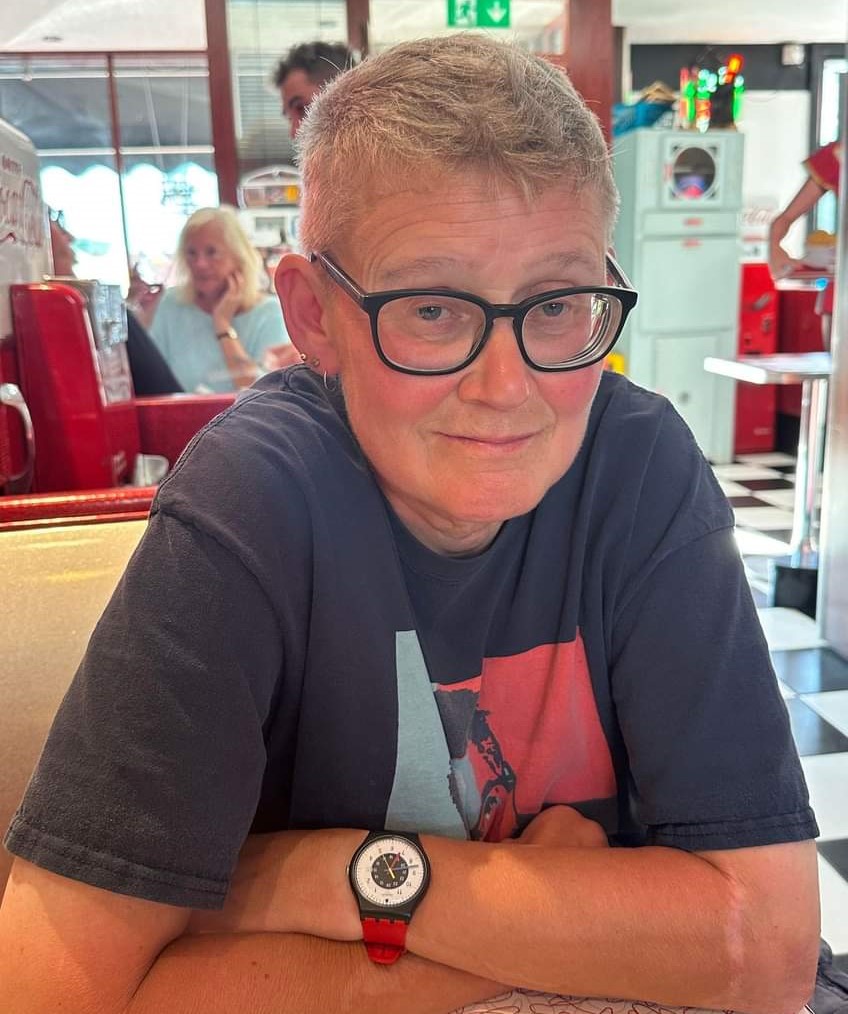
Ceri was diagnosed with oesophageal cancer in October 2019 and, following chemotherapy and radiotherapy, had a total oesophagectomy in August 2020.
"It took me quite a while to get my life back on track after that and to find my new 'normal'. Only once I'd reached that point did I realise that my experiences could help future patients and I became interested in research."
"From that start, I learned about how data is increasingly being used to help push the barriers of medicine forward but also to reassess the impacts of past interventions."
Other organisations or networks that Ceri is part of/connected with and which are relevant to the work of use MY data
- NCRI Advocate - Upper GI group - now UKIOG
- NICE expert panel member
- CRUK early detection project
- Southampton Clinical Trials Unit
- OPA buddy
- Macmillan buddy
Richard Stephens (Chair)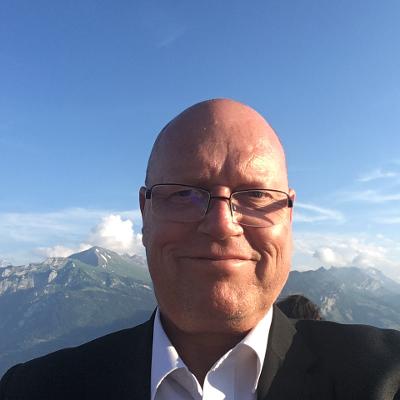
Richard has had successful careers in teaching, journalism and local government. He has survived (thus far) two cancers, a heart emergency, and continued co-morbidities and late effects. He has been a participant in four interventional clinical trials and nine other research studies as a patient, and also has participated in over a dozen studies related to views on research, health services and/or PPI, plus two Covid-19 studies.
He has been a patient advocate for two decades, full-time since 2011. He has chaired BBMRI-ERIC’s Stakeholder Forum (Europe’s biobanking infrastructure) and NCRI's Consumer Forum. He sits on strategic and/or research groups for NIHR, NHS England, Genomics England, Macmillan and Cancer Research UK, and works with industry and with patient groups in Europe, Canada and the USA.
He was the patient co-author of the 2015 National Cancer Strategy, and the patient lead for the NCRI-JLA Living With And Beyond Cancer research priority-setting partnership (2016-21). Beyond cancer Richard helped found the AllTrials campaign as well as the useMYdata movement, and he is the founding co-Editor-in-Chief of the Journal of Research Involvement and Engagement. He is a Visiting Lecturer in PPI at King's College University, London, and an annual guest lecturer for the Universities of Liverpool, Leicester, London South Bank, and for the international Eureka network.
Richard lives in Stevenage, the World's First New Town.
Specific organisations or networks that Richard is part of/connected with and which are relevant to the work of use MY data
- NIHR NETS CC PIVIN (online advisory group)
- CRUK Funding Committees (2012 - present) and Cancer Grand Challenge Patient Advisory Panel (2016 - 2023)
- CRUK-Leeds Radiotherapy Research Centre – Scientific Advisory Board
- MRC CTU Trials Protocol Review Committee; PPI Advisory Group; Quality Management Advisory Group, Trials Steering Committee, Methodology Working Group; Data Access Committee
- Genomics England Ethics Advisory Committee; Data Access and Review Committee
- NHS England Cancer Patient Experience Advisory Groups (CPEAG) for Adults, plus Children & Teenagers
- Management Board, Leeds Centre for Doctoral Research in Artificial Intelligence for Diagnosis and Health Care
- Management Board, Glasgow CTU
- CanVar-CanGene PPI Group (genetic/data research in cancer)
- LSHTM Advisory Groups for epidemiology data studies - ICON (UK cancer inequalities) and Concord (global cancer survival)
- NIHR Patient Recruitment Centres Management Board
- UCL CTC PPI Group
- Trustee, International cancer Research Partnership
- Trustee, Forgotten Patients and Overlooked Diseases
| Executive Group and Secretariat meetings |
The Executive Group and Secretariat meet regularly, at present via online monthly meetings.
Meeting minutes from February 2021 onwards are available here.
| The Members' Census 2020 & Expansion of the Advisory Group in 2021 |
Since use MY data began, it has grown organically and has always been open to Members from all backgrounds. We are a movement that concerns itself with inclusion and seeks to emphasise the voice of patients to understand aspirations and concerns around the use of data in delivery, service improvement, and in research.
As an open movement, we had never asked our members to provide any details about themselves, such as age, ethnicity or gender. However, to help meet our aim, we needed to understand the breadth of our Members’ experiences and backgrounds. We wanted to do this to understand whose voices were missing or under-represented. We could then begin work to remedy this.
Working with our Advisory Group, the Secretariat produced a census to collect this information from our Members. The first part of the census was about personal characteristics and the second part was about engagement activities. The census was anonymous.
The analysis of the census results is available here.
We mapped our results against the UK’s general population and the patient population. The results show that we have good representation amongst our Members in most areas. The area where there is under-representation is in disease/health conditions other than cancer. We need the help of our Members to increase the voices of patients, relatives and carers in this area. To do this, the Advisory Group and Secretariat have identified a set of actions for our Members and for the Secretariat.
As part of the work from the results, the current Advisory Group and the Secretariat felt it was timely to expand the Advisory Group, so that it better reflected the diversity of our Members
In January 2021 we advertised via an open call to our Members and highlighted that the Advisory Group required representation from:
- All of the UK nations (at least one Member from each nation)
- A diverse range of ethnicities
- Patients, relatives, carers with a range of different health conditions, including mental health and physical health
- Different age groups
- Health and social care data users.
All ten places on the new Advisory Group were available, to help achieve the desired representation.
The recruitment process completed in February 2021 and the new Advisory Group came into being on Monday, 15 February 2021.
We did not receive enough applications to give the Advisory Group the diversity needed to reflect our Members. We need to address this via further recruitment. The Secretariat and Advisory Group are working together on this and will provide an update in due course.
| History of the Advisory Group prior to 2021 |
January 2016 – Following consultation in late 2015, a formal Coordinating Group was created. Up to this point, use MY data was coordinated by representatives from Cancer Research UK and the National Cancer Intelligence Network.
Applications to join the Coordinating Group were opened to the use MY data Membership – both Members and Associate Members. The result was a Coordinating Group of seven Members and seven Associate Members.
Work of this Group was carried out via email. A key piece of work carried out by the Group was defining use MY data’s mission and aims. Although these have been tweaked slightly since this point, they remain essentially the same.
2017 – Decision taken that the Coordinating Group should comprise Members only, to ensure use MY data would be truly driven by patients, relatives, carers.
July 2018 – The Coordinating Group members felt that attendance at the meeting was too low and considered whether membership should be expanded. Applications were sought from within the membership. Applications were reviewed at the October 2018 meeting and new Advisory Group Members were chosen by the current Members.
October 2018 - The current purpose of the Coordinating Group was discussed, as members felt that its remit was now as an Advisory Group, not a Coordinating Group. The name no longer reflected their role and also detracted from the role of the Coordinator. The decision was taken to change the name to Advisory Group.








